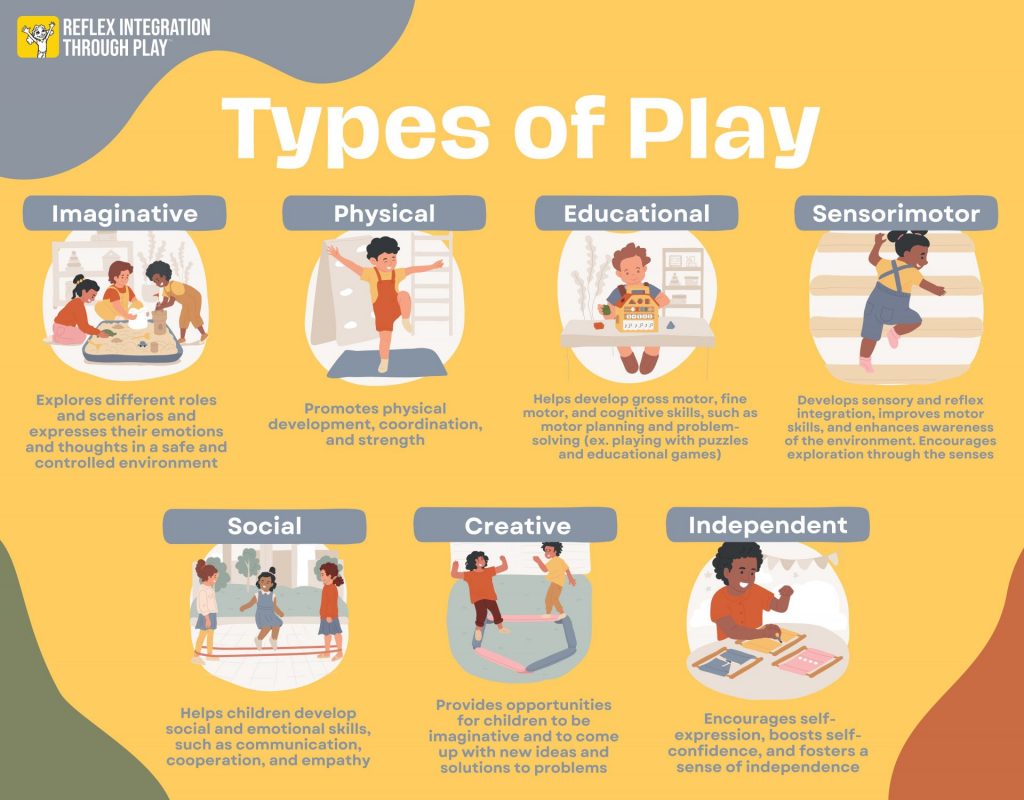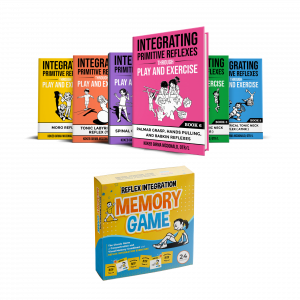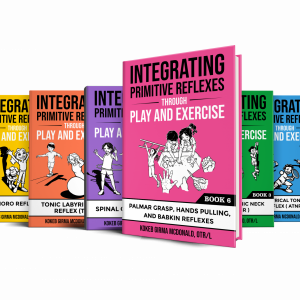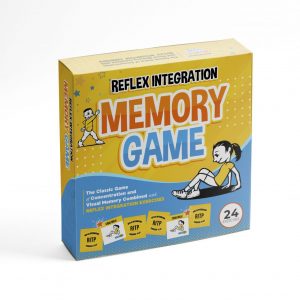Play is an essential part of a child’s development and growth. It provides opportunities for children to learn, explore, and express themselves creatively. Children engage in play in many forms: imaginative, physical, educational, sensorimotor, social, creative, and independent.
-
- Imaginative play allows children to explore different roles and scenarios and express their emotions and thoughts in a safe and controlled environment.
-
- Physical play promotes physical development, coordination, and strength.
-
- Educational play such as playing with puzzles and educational games (e.g. RITP Memory & Movement game), can help children develop gross motor, fine motor, and cognitive skills, such as motor planning and problem-solving.
-
- Sensorimotor Play develops sensory and reflex integration, improves motor skills, and enhances awareness of the environment. Encourages exploration through the senses.

It’s clear that play plays a crucial role in a child’s development and growth. That’s why the Reflex Integration Through Play (RITP) method can be effective when applied correctly with a child.
-
- Social play helps children develop social and emotional skills, such as communication, cooperation, and empathy. Children learn to understand and respect others’ feelings and their own. They also develop the ability to resolve conflicts, negotiate, and understand social norms.
-
- Creative play provides opportunities for children to be imaginative and to come up with new ideas and solutions to problems. This type of play can foster creativity and inspire children to think outside the box. A great way to bring in creativity and imagination is by encouraging a child to design an obstacle course using the exercises from your treatment. Explore our RITP Reference App for some helpful suggestions!
-
- Independent play encourages self-expression, boosts self-confidence, and fosters a sense of independence. It develops creativity and self-directed learning.
It’s important to note that play should be a positive experience for children. Parents and service providers can encourage play by providing a safe and supportive environment, being present and engaged during play, and encouraging children to express themselves freely.
It’s clear by now that play plays a crucial role in a child’s development and growth. That’s why the Reflex Integration Through Play (RITP) method can be effective when applied correctly with a child. Using a play-based program for reflex integration is one of the most effective strategies. The RITP method smoothly includes play in the treatment process, making it practical, effective, and fun for kids. When caregivers and professionals use the RITP approach, they take advantage of how kids naturally enjoy playing, which turns something that might feel like a “hard therapy session” into a positive, fun, and teamwork-focused experience.
For parents and caregivers seeking valuable insights, explore further here.
Discover more here if you’re a service provider eager to enhance your understanding.



